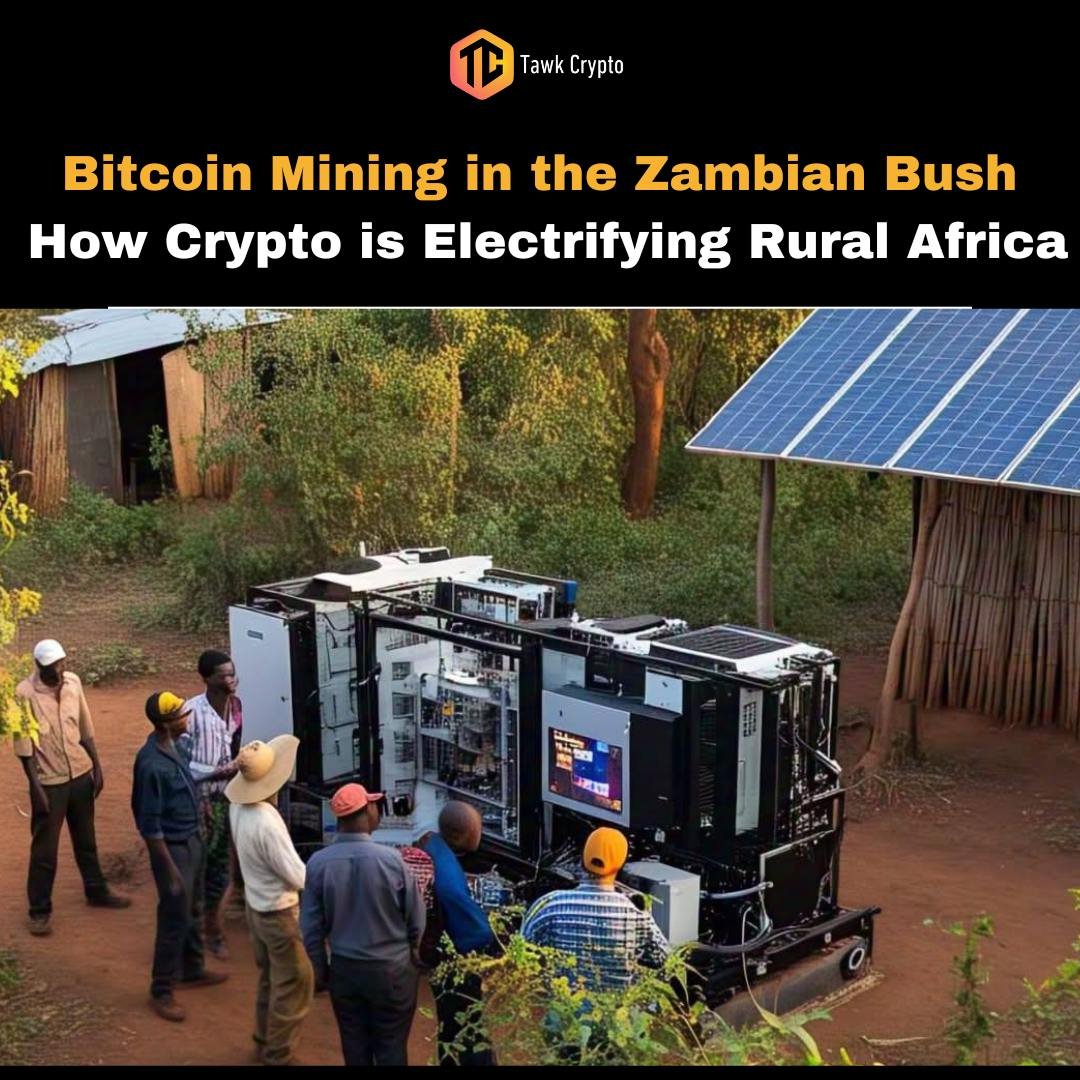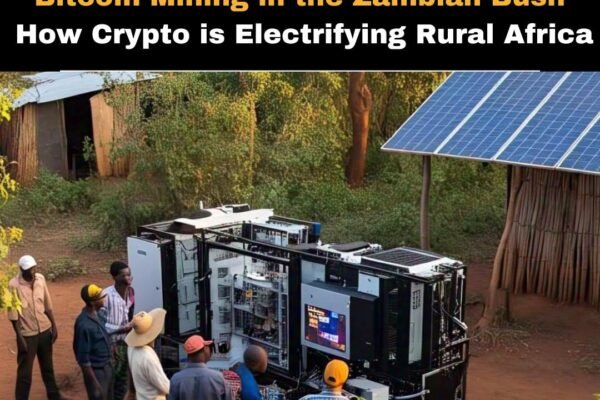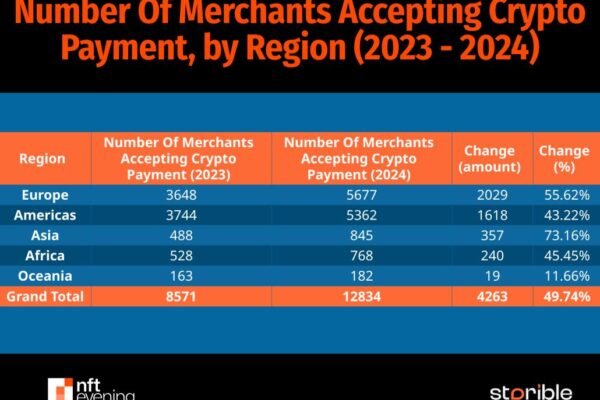

Bitcoin Mining in the Zambian Bush: How Crypto is Electrifying Rural Africa
Remote Zambia Hosts Africa’s Most Unlikely Bitcoin Mine
In the rugged wilderness of northwestern Zambia, where the mighty Zambezi River thunders through the landscape, an unexpected symphony fills the air: the high-pitched hum of bitcoin miners at work.
As reported by the BBC, this remote operation run by Kenya-based company Gridless represents a groundbreaking fusion of cryptocurrency mining and rural electrification. The mine, housed in a shipping container packed with 120 specialized computers, taps into excess hydroelectric power from the Zengamina Hydro Power Plant near the Democratic Republic of Congo border.
A Win-Win Energy Model
According to BBC’s on-the-ground reporting:
- The mine consumes otherwise wasted electricity, converting it into bitcoin revenue that accounts for 30% of the hydro plant’s income
- This financial boost has allowed the plant to lower electricity prices for 15,000 local residents
- Each mining machine generates ~$5 daily profit, sustainable even during bitcoin price dips thanks to ultra-low energy costs
“We’re proving bitcoin mining can fund infrastructure in places where traditional models fail,” Gridless executive Philip Walton told the BBC during their visit.
Life-Changing Power for Zambian Community
The BBC documented how this crypto-powered energy model has transformed daily life in the remote town of Zengamina:
- Damian, a local barber, went from operating only in daylight to running a vibrant evening business with electric clippers, TV, and LED lights
- Sisters Tumba and Lucy Machayi described pre-electricity life as “just the bush” – now they charge phones, access mobile networks, and connect with the world
- The town’s first refrigerator arrived after electrification, revolutionizing food storage and commerce
“Electricity completely changed our lives,” Lucy told BBC reporters.
The African Bitcoin Mining Revolution
Per BBC’s investigation, Gridless now operates six similar sites across Africa, including a conservation-funding mine in Congo’s Virunga National Park. The company is now:
✅ Raising tens of millions to build new hydro plants
✅ Targeting Africa’s vast “stranded energy” potential
✅ Creating a blueprint for sustainable crypto mining
However, challenges remain. Some African regulators still view bitcoin mining as energy-wasteful, despite Gridless’ community-focused model.
Why This Matters for Crypto’s Future
As the BBC report highlights, the Zambia experiment offers solutions to two major crypto criticisms:
1️⃣ Energy Use: Demonstrates how mining can utilize renewable, excess power
2️⃣ Real-World Impact: Shows crypto’s potential to fund development beyond speculation
With Gridless planning to relocate its Zambian miners as the hydro plant connects to the national grid, this model may soon power more remote regions across the continent.
📰 Read the original BBC investigation
🔗 Follow @Tawkcrypto for more crypto-meets-development stories
Disclaimer: This article synthesizes key findings from BBC’s reporting. All quotes and operational details are sourced from the original BBC piece.
Read also: South Africa Leads Africa in Merchant Crypto Payment Adoption in 2025, Ranks 6th Globally







